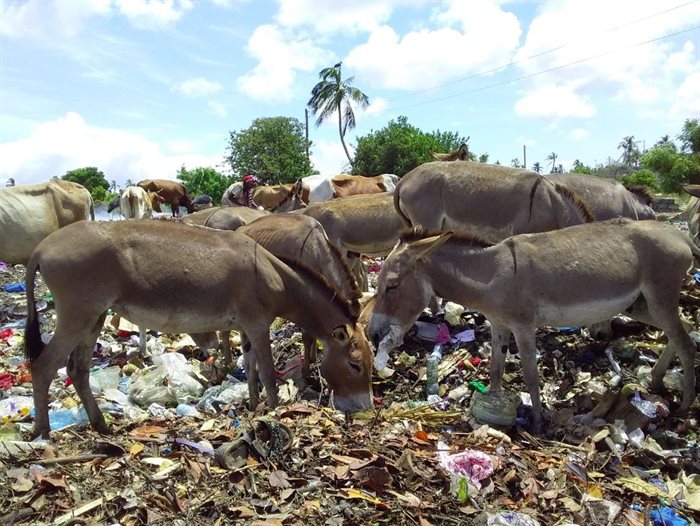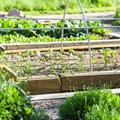Researchers to investigate plastic ingestion in Kenya's livestock, working animals

So far, major focus has been on the effects of plastic pollution on animals in the marine environment, but equally concerning, according to the study, is the effect on terrestrial animals as livestock often end up in the food chain or as working animals which support the livelihoods of some of the poorest communities globally.
Lamu Island is a Unesco world heritage site where subsistence farming is common. Many islanders rely on working animals for their transport and income. Plastic waste is endemic and waste sites are largely unmanaged. A recent investigation conducted by university researchers and The Flipflopi Project in a Lamu abattoir found a slaughtered cow with a staggering 35kg of plastic in its stomach.
Said project lead Dr Leanne Proops, reader in animal behaviour and welfare at the University of Portsmouth: “In many countries, including Kenya, domestic animals graze open waste dumps to find food, consuming plastics that can have a dire effect on health and welfare. Even if livestock appear unharmed, meat and milk often contain microplastics that affect human health. The problem of plastic pollution is getting worse, and we need to know how this impacts the animals that play such a major role in communities in the Global South.”
The new project is a collaboration between the University of Portsmouth and The Donkey Sanctuary in Lamu. The sanctuary runs a programme that strives to address the underlying causes of poor welfare in Lamu, part of which includes a clinic for chronic and acute donkey health needs.
Said Dr Obadiah Sing’Oei, Lamu Clinic team lead and lead vet: “We see the devastating impacts of plastic pollution on these animals on a daily basis and know the knock-on effects to owners who rely on them for their livelihoods. We are pleased that, with the help of researchers from Portsmouth, we will be able to highlight this worrying issue.”

Picture is complex
University researchers have carried out surveys and focus groups with local livestock owners, vets and residents of Lamu Island. They found a growing concern about the links between plastic pollution, ecosystem health, animal welfare and human well-being. However, the picture is complex, livestock owners often cannot afford to feed their animals and, through necessity, let their animals loose to graze.
Investigations have begun to examine the foraging behaviours of cows and donkeys in Lamu. The study has already shown that the ingestion of plastic by free-roaming domestic animals is a major problem. Initial results indicate that there are also clear differences between cows and donkeys. Due to their behaviour and biology, donkeys seem to be more susceptible to the extreme effects of eating inappropriate materials.
Said Proops: “The next phase of the project will see livestock faeces analysed for plastic levels. This study will be the first to directly compare the relative risks of plastic ingestion in domestic species with differing foraging ecology and morphology. This is also the first step in quantifying the impact of plastic pollution on the welfare of livestock and equids in Lamu specifically and will help to inform potential future waste management strategies.”












